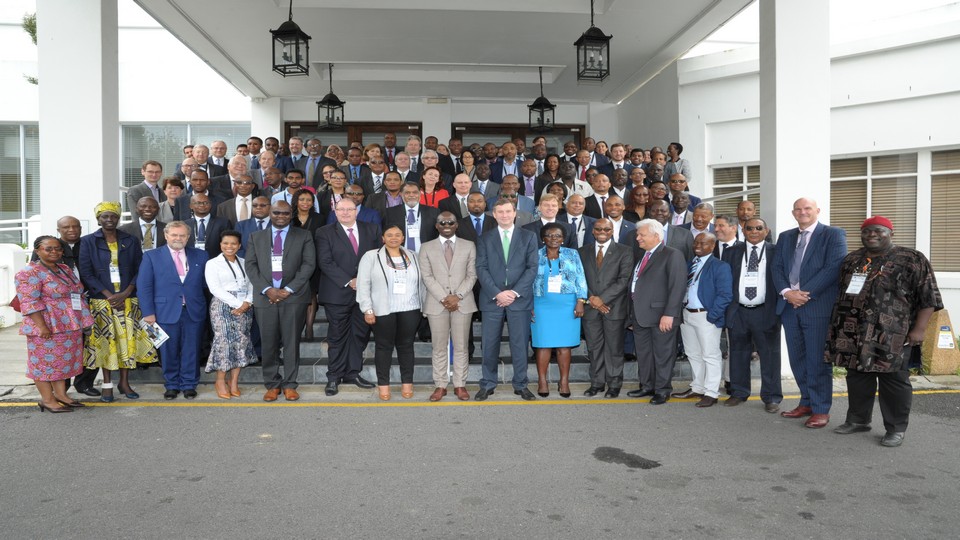299 results found
The Global Infrastructure Hub is negotiating new, long-term partner hosting of its activities to deliver enduring impact.
Today we released two new supplements to our Infrastructure Monitor report, focusing on the role of blended finance and environmental, social, and governance (ESG) factors in infrastructure investment. These latest updates, developed in partnership with Convergence and GRESB, offer a comprehensive examination of both areas, providing valuable insights for infrastructure professionals.
The Global Infrastructure Hub is negotiating new, long-term partner hosting of its activities to deliver enduring impact.
The World Bank and the Global Infrastructure Hub (GI Hub) are pleased to announce that the GI Hub will soon be joining The World Bank's Infrastructure Practice Group as an associated trust fund to the Public Private Infrastructure Advisory Facility (PPIAF)
The World Bank and the GI Hub announced the GI Hub will join The World Bank’s Infrastructure Practice Group as an associated trust fund to the Public Private Infrastructure Advisory Facility (PPIAF) . In connection with this shift, the Global Infrastructure Hub will cease to operate as a standalone not-for-profit organisation.
The Global Infrastructure Hub’s Outlook shows the United States has one of the largest infrastructure gaps. What can the GI Hub’s InfraCompass tell us about fixing it?
A major factor hindering infrastructure implementation and delivery is the absence of good governance, according to the 130 delegates from 27 countries who came together for the first Regional Roundtable on Infrastructure Governance in Cape Town in November.
Over the past few decades, there has been substantial change in living standards globally. Keeping pace with profound economic and demographic changes will require a significant increase in infrastructure investment.
In Buenos Aires on 23 March, the G20 Finance Ministers announced that infrastructure would remain a priority for at least the next three years—a very welcome announcement for those in the private sector who have long called for greater global coordination of efforts in this area.
Public-private partnership (PPP) contracts are long-term and they may have a duration of 20 to 30 years or more. Today, where technologies and social priorities (such as views on climate change and sustainability) are changing at an accelerated pace, it perhaps comes as no surprise that changes to PPP contracts through renegotiations are common.
The Nehru Outer Ring is a road construction project intended to connect and further develop urban settlements and satellite townships in the Hyderabad Metropolitan area
The PPIAF team recently participated in the annual #Infra4Dev Conference in Rabat, Morocco. Henri Blas, Ludovic Delplanque, and Luciana Guimaraes Drummond e Silva each engaged in panel sessions during this two-day event, sharing knowledge insights and resources on various topics, including the global infrastructure financing landscape, PPP project preparation, and integrating gender into PPPs.
The African Infrastructure Fellowship Program (AIFP) recently announced its 2024 cohort of fellows, which includes 18 participants from across the continent and brings together a diverse and talented group of individuals with backgrounds in engineering, finance, law, and more. This year saw over 200 applications for the program.
The G20 Brazilian Presidency and the Australian Co-Chair held the third Infrastructure Working Group (IWG) meeting in Foz do Iguaçu, Brazil, in June, which consisted of five sessions: Linking Infrastructure and Poverty Reduction, Delivering Cross-Border Infrastructure, Financing Climate-Resilient Infrastructure, Infrastructure Global Trends, and Mitigating Exchange Rate Risks. Henri Blas, Program Lead for the Global Infrastructure Hub, participated in session four of the meeting focused on Infrastructure Global Trends.
Last month, Jane Jamieson, the Program Manager for the Quality Infrastructure Investment (QII) Partnership and the Public Private Infrastructure Advisory Facility (PPIAF), along with Khafi Weekes, Climate Infrastructure Specialist at PPIAF, and Helen Gall, Monitoring and Evaluation ETC at QII, participated in the Understanding Risk Global Forum in Himeji, Japan. Initiated in 2010, this year’s Forum was the largest yet, attracting over 1,700 Disaster Risk Management (DRM) and Climate Change Adaptation (CCA) experts and practitioners from across the globe. PPIAF and QII had a strong showing at the Forum, participating in five events, including three plenaries and two workshops.
The Public-Private Infrastructure Advisory Facility (PPIAF) held its Partnership Council Meeting in Vienna, Austria this June. This meeting brought together PPIAF’s esteemed donors and welcomed the Kingdom of Saudi Arabia as the newest donor to PPIAF with their contribution that has supported the integration of the Global Infrastructure Hub (GI Hub) into the PPIAF family. Over the two days, PPIAF engaged in a packed agenda where donors expressed appreciation for the impactful and relevant programs PPIAF delivers.
At the G20 Infrastructure Working Group (IWG) meeting in Pretoria from 21-22 May, the Global Infrastructure Hub and PPIAF presented progress on IWG’s Priority One: “Developing investable infrastructure pipelines and addressing data gaps”.









 Infracompass Tool - USA
Infracompass Tool - USA













